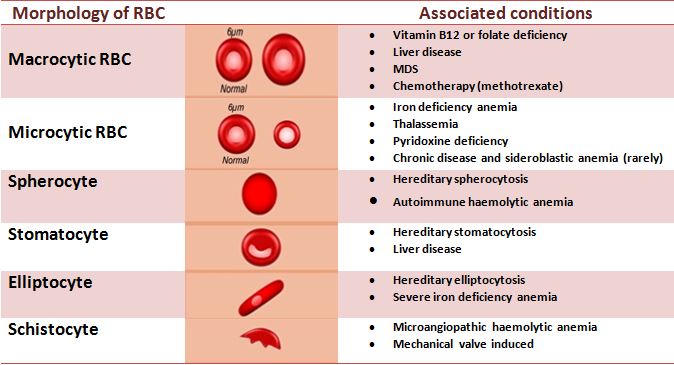What to expect week 7
You and your baby at 7 weeks pregnant
Your baby at 7 weeks
By 7 weeks, the embryo has grown to about 10mm long from head to bottom. This measurement is called the crown-rump length.
The brain is growing rapidly and this results in the head growing faster than the rest of the body. The embryo has a large forehead, and the eyes and ears continue to develop.
The inner ears start to develop, but the outer ears on the sides of the head will not appear for a couple more weeks.
The limb buds start to form cartilage, which will develop into the bones of the legs and arms. The arm buds get longer and the ends flatten out – these will become the hands.
Nerve cells continue to multiply and develop as the brain and spinal cord (the nervous system) starts to take shape.
You at 7 weeks
Your womb has grown to the size of a lemon by the time you're around 7 or 8 weeks pregnant.
You're probably feeling tired. Your breasts might feel sore and enlarged, and you may need to pee more often than usual.
You may start to feel sick or tired, or have other minor pregnancy problems for a few weeks around this time.
In most cases, feelings of nausea and vomiting (morning sickness) start to improve after around 14 weeks of pregnancy.
Some infections can harm a pregnancy. It's important to let your doctor or midwife know if you think you may have an infection so they can give you the right care as early as possible.
Find out about infections that may cause problems in pregnancy
You may have bleeding or sore gums when you're pregnant. Good mouth hygiene and regular dental care, to keep your teeth and gums as healthy as possible, is the best way to avoid or care for gum problems.
Dental care is free during pregnancy and until 1 year after your due date.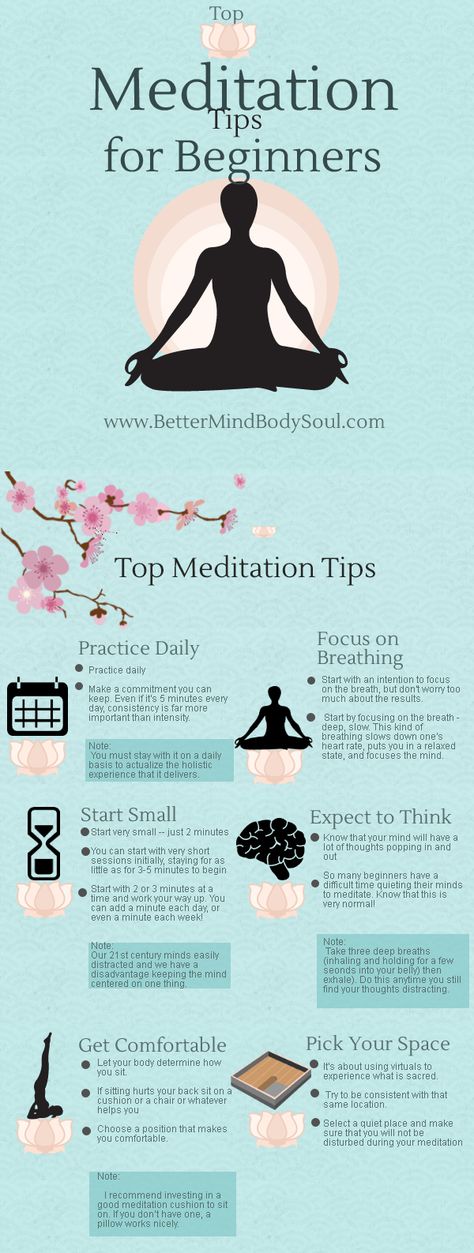 Ask your midwife or doctor about how to apply for free dental care.
Ask your midwife or doctor about how to apply for free dental care.
Things to think about
- find out about midwives, obstetricians and other healthcare professionals who may provide your pregnancy (antenatal) care
- what to expect from your NHS pregnancy journey
- your first midwife appointment
Start4Life has more about you and your baby at 7 weeks of pregnancy
You can sign up for Start4Life weekly emails for expert advice, videos and tips on pregnancy, birth and beyond.
Video: What will happen to my body during pregnancy?
In this video, mothers talk about how they dealt with some of the physical changes during pregnancy.
Media last reviewed: 20 March 2017
Media review due: 20 March 2020
Page last reviewed: 12 October 2021
Next review due: 12 October 2024
7 Weeks Pregnant: Symptoms and Baby Development
7 Weeks Pregnant: Your Baby's Development
Although your baby’s brain development will continue long after birth, the basic sections have formed. As the week progresses, the digestive system and lungs are also developing. Tiny facial features are also starting to take shape, and each little arm now has a paddle-shaped hand attached to it.
Another important development this week is the formation of the umbilical cord. This cord creates a connection between you and your developing baby throughout your pregnancy that allows nutrients and oxygen to flow between you and also eliminates your baby's waste.
If you have a prenatal checkup scheduled for this week or sometime soon, and have an ultrasound exam, you may have an opportunity to see and hear something amazing: a heartbeat! Don’t worry if this isn’t in your healthcare provider's plans quite yet.
In the meantime, you can get an idea of when you'll meet your little one by using our Due Date Calculator.
As the week progresses, the digestive system and lungs are also developing. Tiny facial features are also starting to take shape, and each little arm now has a paddle-shaped hand attached to it.
Another important development this week is the formation of the umbilical cord. This cord creates a connection between you and your developing baby throughout your pregnancy that allows nutrients and oxygen to flow between you and also eliminates your baby's waste.
If you have a prenatal checkup scheduled for this week or sometime soon, and have an ultrasound exam, you may have an opportunity to see and hear something amazing: a heartbeat! Don’t worry if this isn’t in your healthcare provider's plans quite yet.
In the meantime, you can get an idea of when you'll meet your little one by using our Due Date Calculator.
The Size of the Embryo at 7 Weeks Pregnant
Your little one is growing fast! At seven weeks, the embryo is about the size of a small blueberry, about 0. 3 inch long.
For a visual idea of how things are developing inside your uterus this week, check out this illustration:
3 inch long.
For a visual idea of how things are developing inside your uterus this week, check out this illustration:
Mom's Body at 7 Weeks Pregnant
The pregnancy signs and symptoms you may have experienced in the past weeks will probably continue, and some of them may become more pronounced this week.
Although these symptoms can be tiring and annoying, keep in mind that you're just a few weeks away from your second trimester, when many of these symptoms may subside.
One symptom you may be experiencing around this week of pregnancy is frequent urination. Hormonal changes and increased blood volume are to blame for this. Now that there's more fluid in your system, it means more for your kidneys to process, and as a result, more urine is produced.
Instead of cutting back on your fluid intake, stay hydrated by drinking more water than you did before you were pregnant. Experts recommend about 10 cups of fluids per day.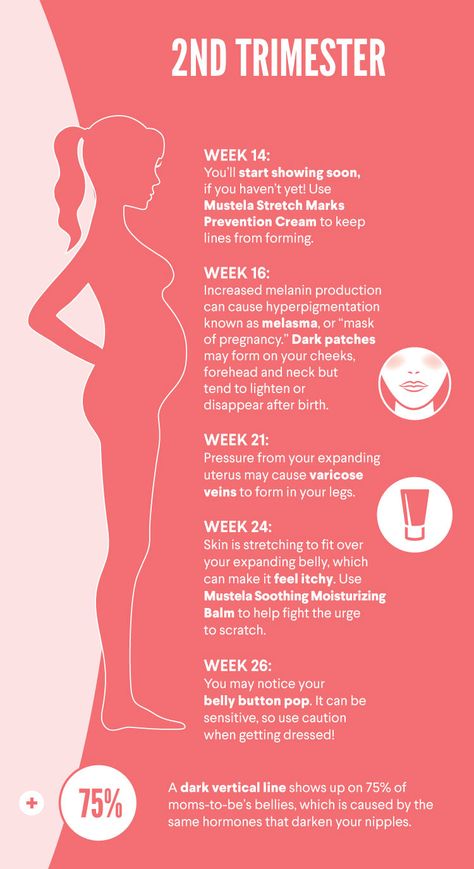 Healthy habits should take center stage now. Your healthcare provider may caution you about the risks of contracting toxoplasmosis, an infection that’s passed through raw or undercooked meat and cat feces.
To avoid coming into contact with the germ, order your meat well done, wash your hands thoroughly after preparing meat, and take yourself off kitty litter duty for the rest of your pregnancy, if you haven’t already done so.
Healthy habits should take center stage now. Your healthcare provider may caution you about the risks of contracting toxoplasmosis, an infection that’s passed through raw or undercooked meat and cat feces.
To avoid coming into contact with the germ, order your meat well done, wash your hands thoroughly after preparing meat, and take yourself off kitty litter duty for the rest of your pregnancy, if you haven’t already done so.
7 Weeks Pregnant: Your Symptoms
At seven weeks pregnant, here are some of the symptoms you may be experiencing:
Excess salivation. You may notice more saliva than usual, often accompanying the nausea and vomiting of morning sickness. It may feel weird, but this is just another strange, yet normal part of pregnancy for many women.
Food cravings or aversions. Feel like pickles and chocolate for dinner? Can’t stand the smell of eggs even though it never used to bother you? Your food preferences and tolerance for odors may change during this time, and these changes are most likely caused by hormones.
 If you find yourself craving any non-food items, like dirt or chalk, talk to your healthcare provider right away.
If you find yourself craving any non-food items, like dirt or chalk, talk to your healthcare provider right away.
Nausea. Of all of this week’s symptoms, morning sickness can be the worst. It’s often in full effect at this stage, and it can make you feel absolutely miserable. Luckily, for many women it’s likely to disappear during the second trimester.
Diarrhea. As if you needed another trip to the bathroom! At seven weeks, diarrhea is usually nothing to worry about. It may be one of the gastrointestinal symptoms (like constipation or indigestion) that you might experience due to fluctuating hormones. Try adding foods like applesauce, oatmeal, and bananas to your diet to help absorb any excess water, and stay hydrated, as diarrhea can lead to dehydration.
Spotting. Light spotting at seven weeks pregnant is considered normal, especially after sex. If you notice heavier bleeding, call your healthcare provider.
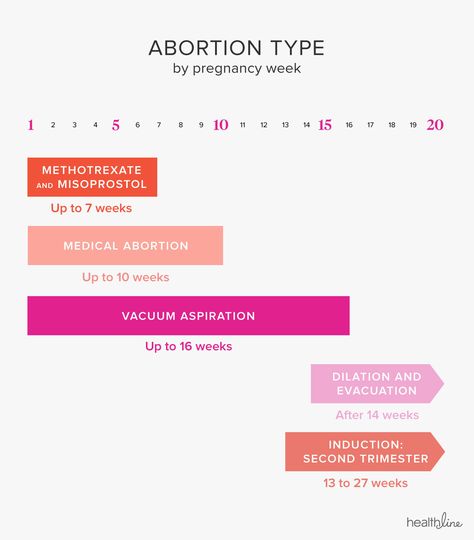
Cramping. If you feel mild cramps, what you’re experiencing is quite normal. Your uterus is expanding, so some discomfort is to be expected. If the cramping is severe or long-lasting, or if you feel pain other than cramping, call your healthcare provider.
Fatigue. You may continue to feel exhausted this week. Your levels of the hormone progesterone are quickly increasing, and it's this hormone that can make you feel sleepy. So try to take good care of yourself by resting as often as you can.
Read our A to Z on pregnancy aches and pains so that you feel more prepared for what you may experience during the coming months.
7 Weeks Pregnant: Things to Consider
You may want to buy a few pieces of clothing to wear as you grow. Stretchy clothes are great for staying comfortable, but also think about the fit and material. For example, make sure you get fitted for the right bra size throughout your pregnancy, and look for underwear and clothes made from cotton or other natural fibers to help keep you cool and comfortable.
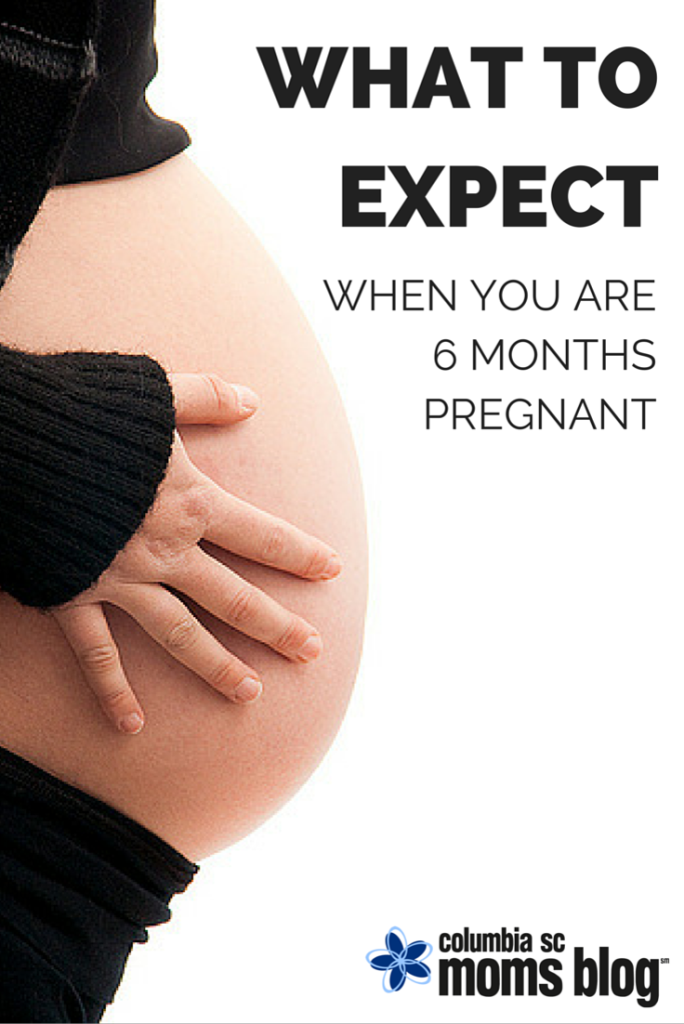
Make sure you and your little one are both getting the nutrients you need. Think about ditching spicy or fried foods, as they can cause heartburn. Also, if you're vegetarian or vegan, you can find plant-protein stand-ins (like grains and legumes) that will help balance your diet. Ask your healthcare provider whether you need to take any supplements, like vitamin B12, which is found only in animal products.
Take good care of your skin. You may get acne around this time (thanks, hormones!), so you'll want to try to keep your skin clean and free of excess oil to help prevent clogged pores and pimples. Wash your face twice daily with a gentle cleanser, keep your hair out of your face, and make sure you choose makeup and skincare products that are oil-free to avoid clogging your pores.
If your pregnancy symptoms have you feeling down, keep in mind that you're just over a month away from your second trimester, when many of these pesky first trimester symptoms start to subside.
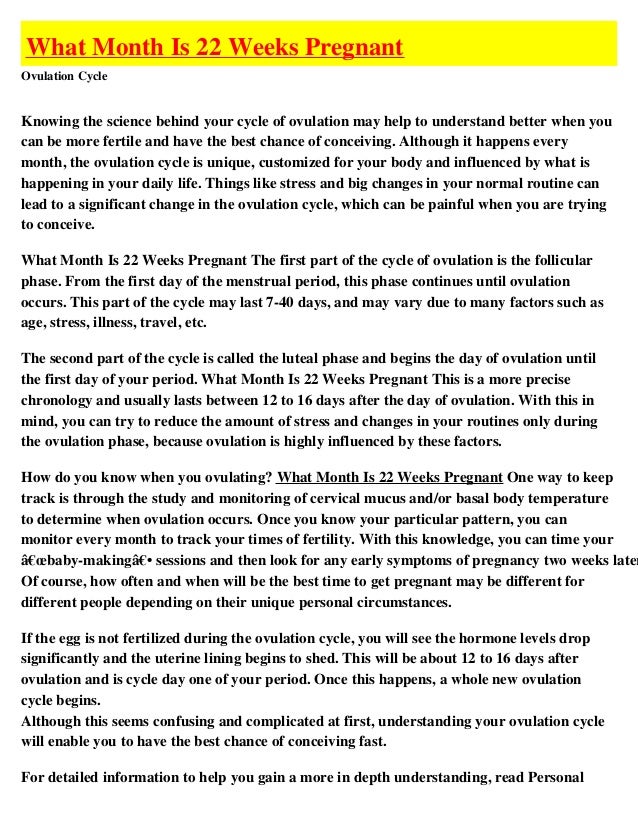 Even better news: many moms-to-be report an uptick in their energy levels in the next trimester. Still, if your mood swings seem particularly severe or if you have a mental health condition you need help with, chat with your healthcare provider. They will have good strategies for how it can be managed throughout the rest of your pregnancy.
Even better news: many moms-to-be report an uptick in their energy levels in the next trimester. Still, if your mood swings seem particularly severe or if you have a mental health condition you need help with, chat with your healthcare provider. They will have good strategies for how it can be managed throughout the rest of your pregnancy.
Start a month-by-month baby bump photoshoot using our free downloadable bump to baby monthly milestone cards. Stand in the same spot each month, wearing the same clothes, and hold one of our printable cards. The keepsake will bring a smile to your face in the years to come, and the pictures also make a beautifully shareable memento should you want to post them to social media or email them to loved ones.
7 Weeks Pregnant: Ask Your Doctor
Your prenatal visits are usually scheduled about once a month until the last two months of your pregnancy, when they will become more frequent. These regular checkups give you the perfect opportunity to ask questions and bring up concerns.
These regular checkups give you the perfect opportunity to ask questions and bring up concerns.
What's the best way to manage weight gain while pregnant?
Are there any special precautions to take at work during pregnancy?
What plans are in place for labor and delivery? Talk with your healthcare provider about possible labor complications and other challenges that may come up in the delivery room, and how they'll be handled if the time comes.
Is “pregnancy brain fog” a real thing?
What are the signs of hyperemesis gravidarum?
7 Weeks Pregnant: Your Checklist
Make sure you're getting enough folic acid and other essential nutrients in the form of a prenatal vitamin.
Read up on what you may experience in the next few weeks of your pregnancy in our go-to Pregnancy Guide.
Get a flu shot early in flu season.

Read up on prenatal care so you know what appointments and tests are likely to happen over the coming months.
Play around with our Pregnancy Weight Gain Calculator to get an estimate of healthy weight gain based on your pre-pregnancy weight.
Sign up for even more pregnancy tips here:
7 weeks pregnant after conception
Fetal development. 7 weeks pregnant
Compared to last week, the embryo has grown twice, and in the coming weeks the growth rate will only increase! Starting from the seventh obstetric week, he becomes like a man, the tail decreases, and the body grows, although the head is still disproportionately large. The baby's arms and legs lengthen, feet and palms appear. Eyes can already be distinguished on the head, lips and even teeth are beginning to form. The brain and spine are actively developing. The digestive system also develops: it is at the 7th week of pregnancy that the esophagus, the anterior wall of the abdomen and the pancreas are formed, and the small intestine is laid. The intestinal tube forms the rectum, bladder and appendix. Your baby is already moving in the womb, but you can’t feel the movements yet - the embryo is too small.
The intestinal tube forms the rectum, bladder and appendix. Your baby is already moving in the womb, but you can’t feel the movements yet - the embryo is too small.
7 weeks. Development of pregnancy
By the seventh obstetric week of pregnancy, your uterus has doubled its normal size and your blood volume has increased by 10%. You may be urinating more often than before. Most likely, the increased urge to urinate will haunt you until the end of pregnancy, and even increase in the third trimester.
7 weeks pregnant: a critical period for the development of the placenta. It is very important to be more attentive to yourself at this stage of pregnancy, since the placenta is still very sensitive to adverse external factors.
Toxicosis at 7 weeks pregnant
According to statistics, about 50% of pregnant women are subject to toxicosis. If you are unfortunate enough to be one of them, then by the seventh week the symptoms will develop in full force.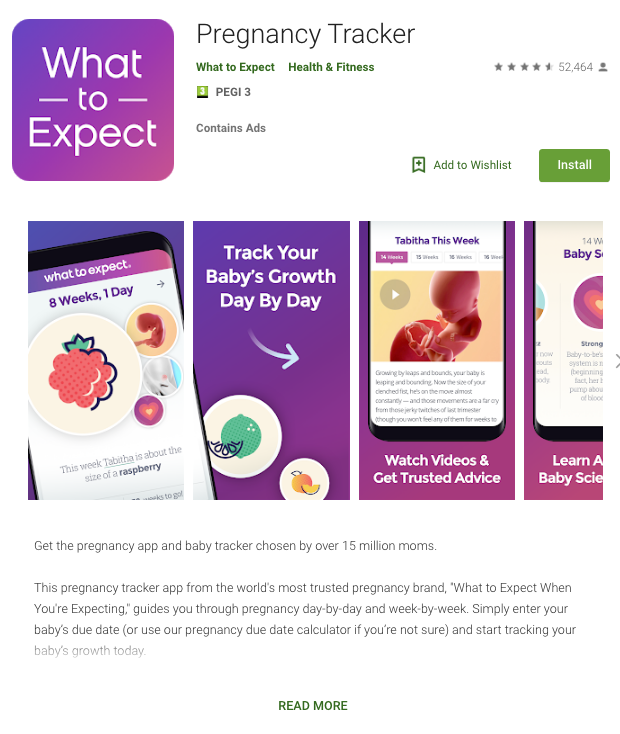 If you experience drowsiness or slight dizziness for a period of 7 weeks, be aware that they can also be signs of toxicosis, such as a change in taste preferences.
If you experience drowsiness or slight dizziness for a period of 7 weeks, be aware that they can also be signs of toxicosis, such as a change in taste preferences.
If you experience nausea and vomiting more than five times a day, or if you experience it every day, at any time of the day, be sure to contact your doctor. He will tell you what steps to take to avoid dehydration. If the situation is not critical, try to eat something immediately after waking up, without getting out of bed, eat small portions, get plenty of rest, drink enough water.
If you experience drowsiness or slight dizziness at 7 weeks of pregnancy, know that these can also be signs of toxicosis, such as a change in taste preferences.
When using any materials from the site nutriclub.ru, a link to the site is required.
© Nutriclub, 2020
Select week of pregnancy
- weeks 1-4
- weeks 5
- weeks 6
- weeks 7
- weeks eight
- weeks 9
- weeks ten
- weeks eleven
- weeks 12
- weeks 13
- weeks fourteen
- weeks fifteen
- weeks 16
- weeks 17
- weeks eighteen
- weeks 19
- weeks twenty
- weeks 21
- weeks 22
- weeks 23
- weeks 24
- weeks 25
- weeks 26
- weeks 27
- weeks 28
- weeks 29
- weeks thirty
- weeks 31
- weeks 32
- weeks 33
- weeks 34
- weeks 35
- weeks 36
- weeks 37
- weeks 38
- weeks 39
- weeks 40
You will also be interested
- Nutriclub - healthy nutrition and child development
- Pregnancy
- Pregnancy Calendar
- Week 7
Third trimester of pregnancy (weeks 28 to 40)
At 30 weeks pregnant, you are ready to go on maternity leave. In the case of twins, prenatal leave is from 28 weeks. Active work, physical and mental overload during this period can provoke premature birth.
It's time to put on the bandage - it will help your baby stay in the right position and you in good shape after childbirth.
The child still needs a lot of nutrients, vitamins, mineral salts. Use your vacation to relax, but don't lie around all day. We hope that hiking in the fresh air has become a habit for you.
Do not forget to monitor the ratio of drunk and excreted liquids. Accumulating in the body, the fluid disrupts the functioning of the kidneys, increases the load on the heart, which causes an increase in blood pressure. As a result, the child suffers: he lacks nutrients, oxygen.
As a result, the child suffers: he lacks nutrients, oxygen.
A sharp headache, flies before the eyes, convulsions are signs of eclampsia, a severe complication of pregnancy that poses a threat to the life of the mother and child. Urgently call the ambulance.
At this time, the uterus becomes very sensitive to the pushes and movements of the child, its muscles periodically tense up. It's like she's doing gymnastics. If this rarely happens and you do not feel pain, then everything is in order and there is no cause for concern. But if the uterus tenses often, pain appears - call an ambulance. If spotting appears, amniotic fluid is pouring out, do not wait for contractions - immediately to the hospital!
Sex life from 32-33 weeks is not recommended.
At 32 weeks, another scheduled ultrasound examination is scheduled to assess the correct functioning of the placenta, if necessary, the study of fetal heart sounds.
The last month is the most difficult. The load on the body has increased to the maximum. You are already tired of the long wait. Approximately two weeks before delivery, a mucous plug will come off the cervix, which is a lump, sometimes slightly stained with blood.
The load on the body has increased to the maximum. You are already tired of the long wait. Approximately two weeks before delivery, a mucous plug will come off the cervix, which is a lump, sometimes slightly stained with blood.
Do not forget to make up for the lack of calcium in the body - until the last day of intrauterine existence, a child intensively stores minerals. Eat fully and properly - the fetus eagerly takes everything valuable for the formation of the body. He needs protein now. Be sure to take a prenatal multivitamin. Rest during the day. Lie on your side, slightly raise your legs.
Many women suffer from constipation at this time. Only a rational diet will help. Eliminate grapes, fresh cabbage, peas and other legumes, fresh milk, muffins, sweets. Useful: curdled milk, fermented baked milk, kefir. Steamed dried fruits normalize bowel function well. Don't take laxatives. In the last trimester of pregnancy, they can provoke uterine contractions and cause premature birth.






